This blog post is based on a talk I gave on November 13, 2020 at the Build Stuff software development conference. I was also a presenter at the 2019 conference, where I stood on stage and talked about shiny geeky tech – machine learning and computer vision and reverse engineering knitting patterns. And that stuff is fun, and I love it. But this year… this year feels different. I know people who’ve been laid off this year. I know people who’ve had trouble finding their next contract. And I know folks who have really struggled to adapt to changed working conditions. 2020 has really sucked for a lot of us. And that’s why this year I chose not to talk about how to build something cool, but instead how to build a career that makes you happy.
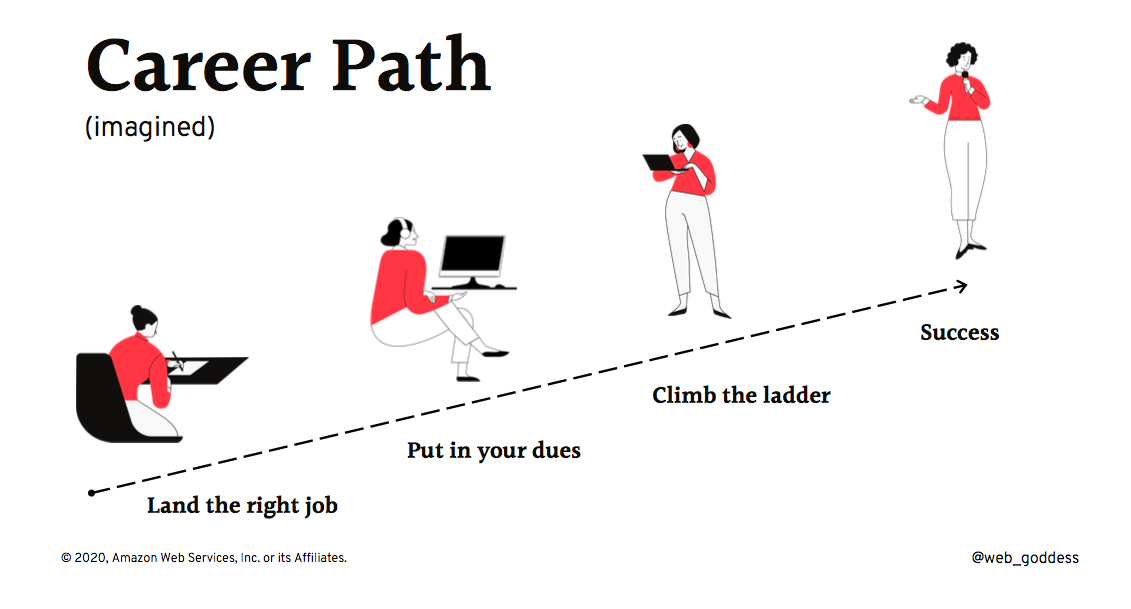
I think all of us start out with a picture of how we expect that to go. We land the right job, do the hard work, put in our dues, get recognised and promoted as we climb the ladder, and eventually we end up rich and successful. And hey, maybe working in a unicorn startup that IPOs along the way too, right? I started my career in the tech industry 20 years ago, and this was pretty much how I expected it to go. I was a web developer, and everybody knew that the Internet was the land of opportunity and riches. Six months out of uni I was at a startup in London going through hockey stick growth; I’d been designated a Subject Matter Expert, helping to hire new devs and setting company-wide standards; and on top of all that, I was outearning my Dad. The path seemed really straightforward and clear.
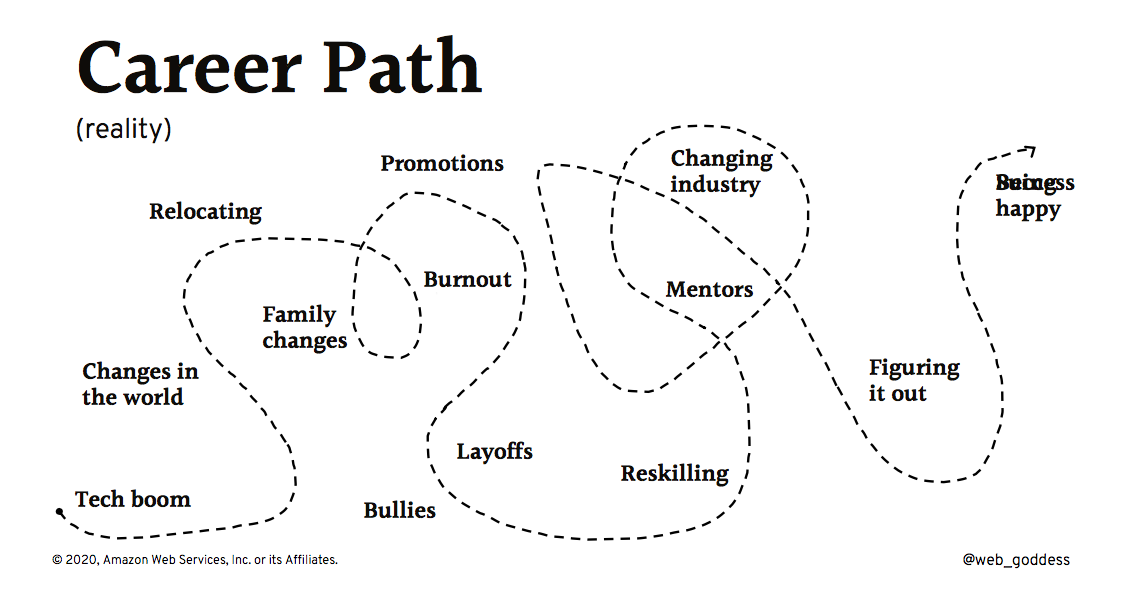
Reality was somewhat different. What I have learned over the last two decades is that very, very few people actually have that straight path. For most of us, there are zig-zags and detours and loops. I’ve gone through three major job ladder changes over those years, from a developer to a business analyst, to a people leader, and now developer advocate. I was a contractor for a while. I’ve lived in three different countries. I’ve worked in techbro startups and traditional corporates. I’ve had big promotions, but I’ve also taken pay cuts. I’ve been laid off three times, and I burned out and quit the industry entirely for a while. I’m sure many of you would be able to draw a similar picture.
The really interesting thing is – I don’t think it’s just chaos and random chance. Each of those experiences taught me something that I was able to put into practice down the track. And somewhere along the line, the end goal changed. It went from “Success” to being happy, which ultimately means living and working in alignment with my personal values. And believe it or not, that’s how I ended up

moving from Australia to Germany in the middle of a global pandemic. It makes total sense, I swear! But more on that later.
In this post I really want to dive deep on values.
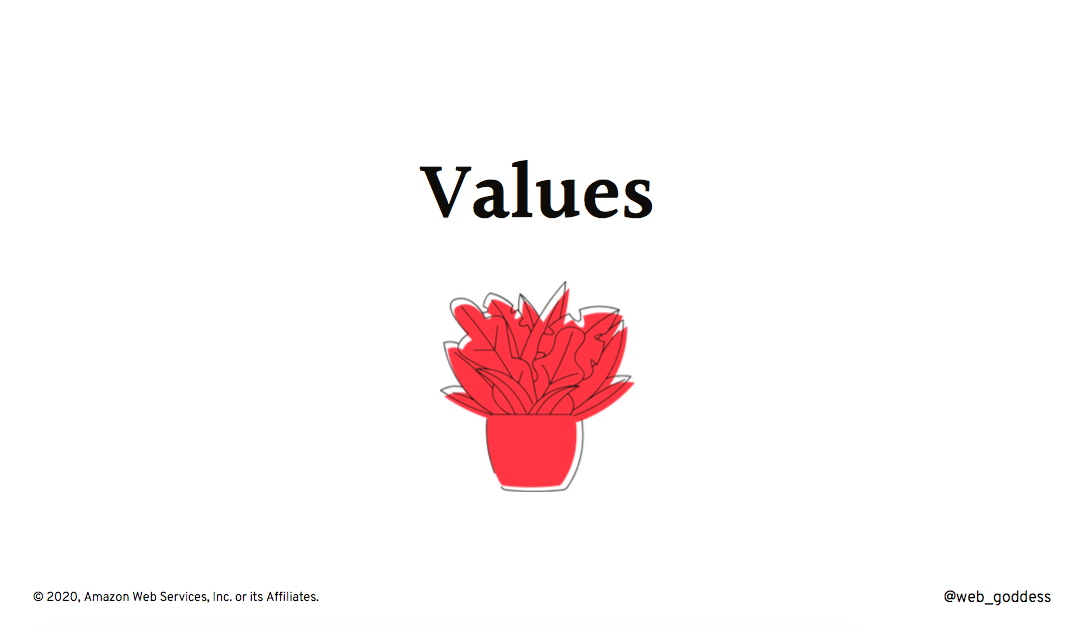
Your values are the things that you believe are important in the way you live and work. This is true whether you actually acknowledge those values or not, and deep down, they’re how you judge whether your life is turning out the way you want it to or not. Values determine your priorities and help you make plans and choose between different options. In a nutshell, when you make decisions and behave in ways that are aligned to your values, life is good. You feel satisfied and happy. But when things aren’t in alignment… that’s what you can get stressed, or unhappy, or frustrated.
Right now, at the end of 2020, is a great time to take stock of your own values and see whether the career path you’ve envisioned actually matches up with those. For me, it’s taken me the better part of two decades to figure this stuff out. I’m hoping that by sharing some of the lessons I’ve learned, I can help you get to that understanding faster. And at the end of this post, I’ll show you an exercise you can do to determine your top personal values so you can start using them to guide your way in 2021.
For me, the first big sign that my career path wasn’t going to be a straight line from A to B was burnout.
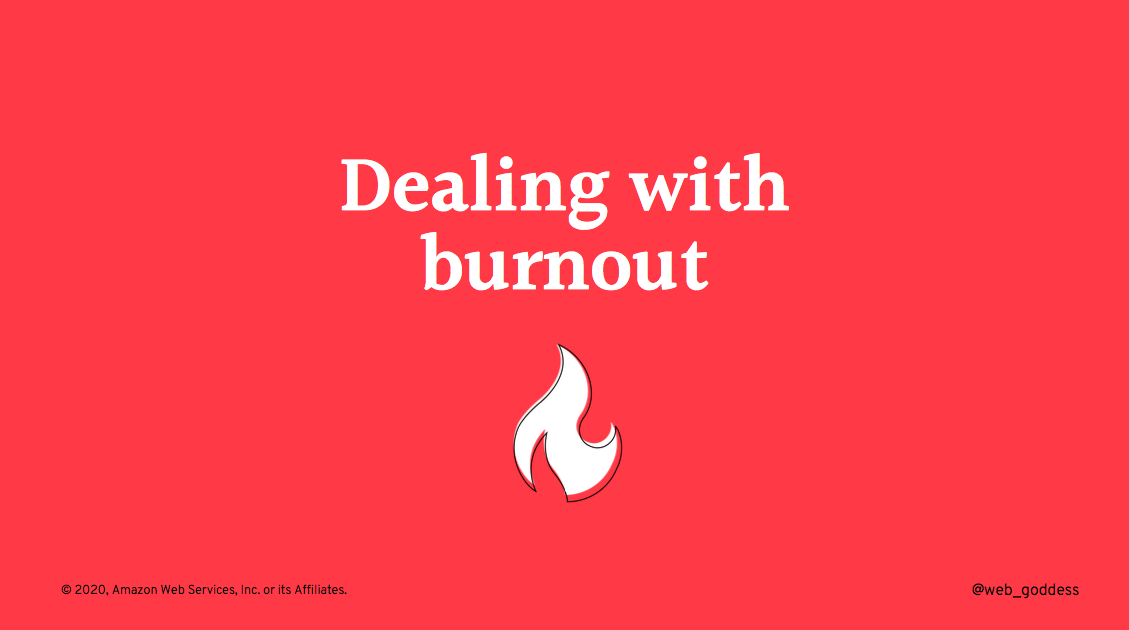
I was five years into my career as a developer at this point. I’d been through the dotcom boom in London, working 60 hour weeks building dating websites and ecommerce shops, and when the bust happened, it all just disappeared. I’d moved halfway around the world to Sydney, Australia, where I had no friends beyond my partner. I hustled as a contractor, trying to win jobs to build websites that no one needed. Eventually I ended up as lead developer at a printer company, building websites with the explicit goal of getting people to print stuff out and use up more ink. One day my boss gave me feedback that my code “needed more div,” and I just couldn’t take it anymore. You know that bit in the Hitchhikers Guide to the Galaxy, where a planet sends off all its most useless people, like telephone sanitisers? I felt like that’s where I belonged, like I wasn’t adding any value to the world, and I hated every bit of it, and I quit.
I’ve given talks that touched on burnout in the past, and I can tell you that the majority of the folks in the industry have either been there or felt on the verge. And look, there are lots of reasons this happen. Sometimes it’s an emotional or spiritual crisis, like I was having, where what you’re doing just isn’t fulfilling. Sometimes it’s because you’ve been working in crunch mode for way too long without a break, and your body just can’t take it anymore. Sometimes it’s because a global pandemic hits, and you have to figure out how to work from home with all the kids and the pets and get toilet paper delivered without losing your mind.
The way I recovered from burnout – and granted, this will NOT work for everyone – was to go work a real, physical job for a while, in a small business. I spent more than three years working in an independent craft store. I rang up customers, I counted stock, I swept the floor, I taught classes, and I stood on my feet all damn day. And I absolutely loved it. Eventually I took over their website and revamped it, building in all the features that I wanted as a customer, and filling all the orders as they came in. It turns out that it wasn’t the tech that was the problem; it was that the jobs I’d been in hadn’t delivered on things that were important to me. I learned that, rather than the stereotype of a developer sitting alone with a computer, I like talking to people and interacting with them, and understanding exactly what it is that they want, and delighting them. I like being creative and getting to express myself. I like projects with tangible outcomes, that make a real difference in people’s lives. And through some of the programs we ran
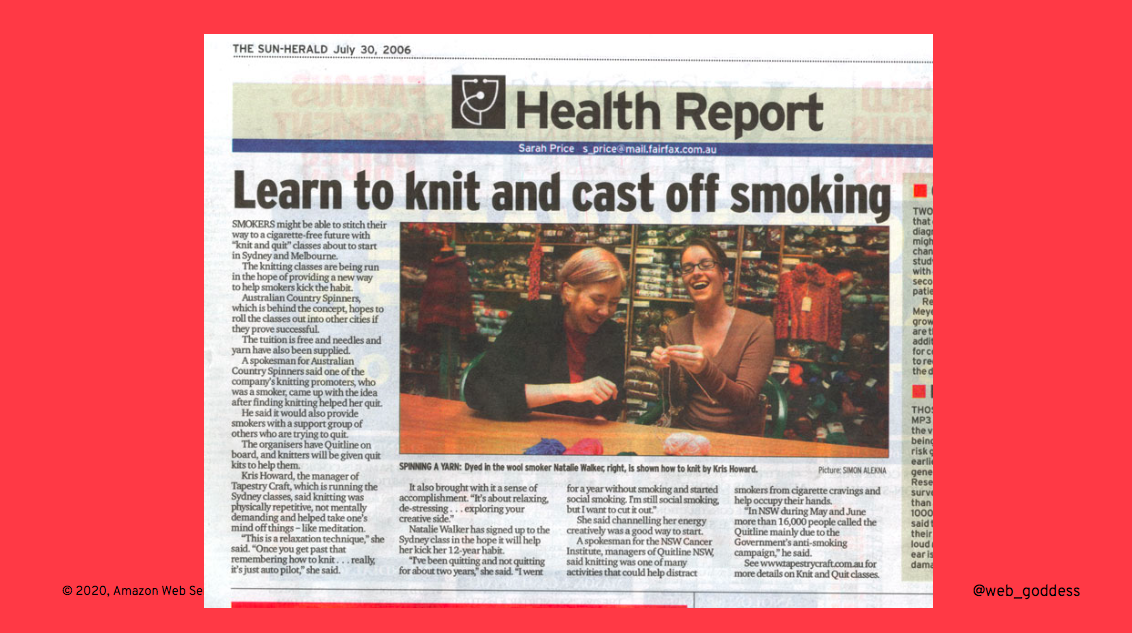
like this one where I taught smokers to “knit and quit,” and gave interviews to newspapers and radio – I learned that I liked being recognised for my ideas as a thought leader.
I didn’t have the language yet to identify these as my values; all I knew was that even though I was working harder for less money, I was a lot happier. Unfortunately sometimes people don’t have the luxury to leave the tech industry, which – let’s be honest – pays a lot more than others. And that’s ultimately what pulled me back in – I got married, I got a mortgage, so I went back to tech for the money. But this time, I was able to use what I’d learned about myself to jump to an entirely new career ladder.
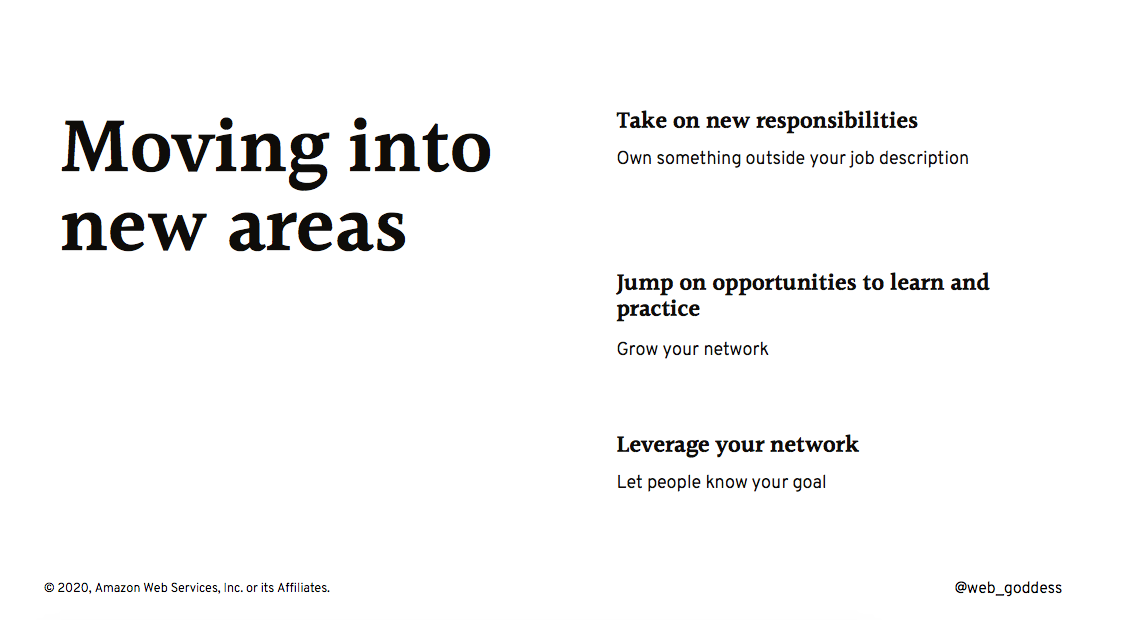
It took me just under a year to make the change from a web developer to a business analyst. Actually, I didn’t even know that was the role I wanted, or even that it existed – I just knew that building websites to sell ringtones to teenagers (which was the only job I could get) was not going to make me happy. So I began laying to groundwork to change roles. If you’re in a similar boat, you have have felt that this is a catch-22 – no one will hire you in the new role because you don’t yet have experience in it, but you can’t get experience without the role.
So my advice is to get that experience WITHIN your current role as best you can. First, look for opportunities to take on new responsibilities outside your day job, ideally ones that align to your strengths and interests. For me, that meant I took on the task of writing documentation for our users, which no one else on the team cared about or wanted to do. I also put my hand up to run the demos at our fortnightly showcases, which meant that people from other teams started to recognise me. For you, maybe it’s improving your team’s testing framework, or conducting user research, or attending a sales training course. Basically whenever you get an opportunity to learn or practice a new skill, jump on it. When the product manager needed someone to fly overseas on short notice to run training sessions for users, I was the first person he came to. And even thought it was scary – and it really had nothing to do with my day job of building custom Joomla modules – I went for it. And eventually I realised that I actually liked doing the new stuff better, and I wanted that to be my job. And crucially, when you want to change roles, you need to let people know. I made sure that the product manager and other leaders knew that if a role opened up, I wanted to move to that team. When the company eventually fell apart – because it turns out premium SMS was not a sustainable long term business strategy – one of the former leaders invited me to interview for a business analyst role at his new company, and I ended up doing that role for 4.5 years.
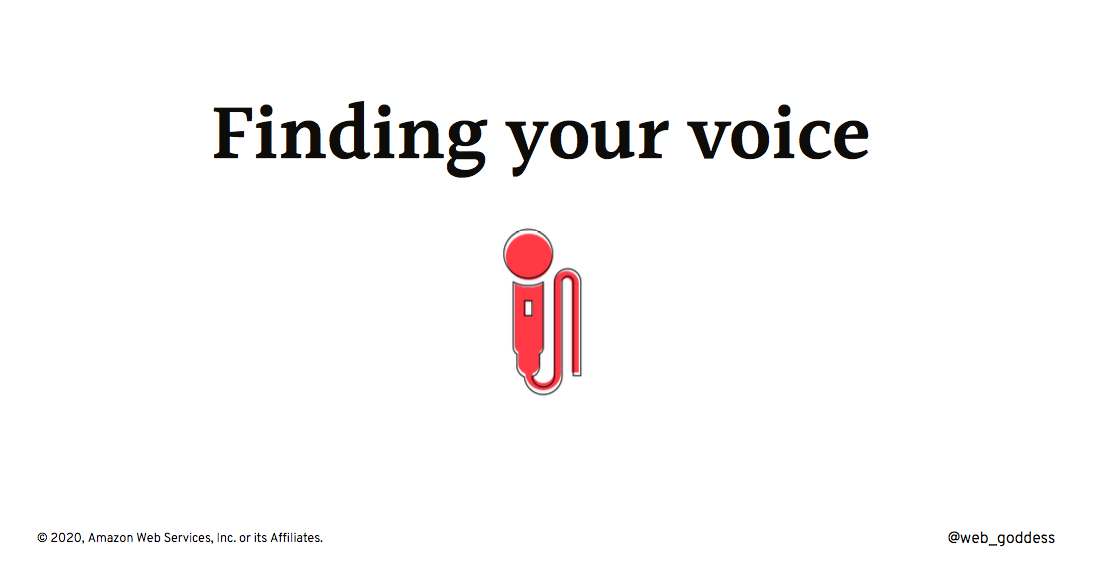
During my time as a BA, the single most important thing I did to grow my career was to begin public speaking. Look, I don’t think every person in the industry needs to aspire to give conference talks. But I honestly believe that if you put the effort in to practice and improve how you communicate, it will pay dividends. At a bare minimum, unless you work in a team of one, you will need to sell others on your ideas. That’s a lot easier when you know how to construct a compelling pitch. Being a better presenter also helps you with job interviews and annual performance reviews. It’s basically a cheat code, a way to stand out from the vast majority of your peers.
For me, I started by volunteering to give talks at local meetups. I can tell you right now that every meetup organiser is desperate for speakers, and most of them are happy to have first timers. If you’re really lucky, you can find a meetup where they actually provide mentoring for new speakers. There are also formal training options for speaking, including Toastmasters groups all around the world, if that works for you. One of the best talks I’ve ever attended was
this session by Damian Conway on giving Instantly Better presentations. It’s actually online, and I highly recommend you watch it if you’re interested in taking your career as a technical speaker to the next level. I was there that night and I scribbled notes for 90 minutes straight, learning about different ways to tell stories, to avoid “death by powerpoint”, to present code effectively, and to handle nerves. I was fortunate enough later to attend a training session with Damian, and I am still using the things he taught me.
And I want to be clear – every single time I gave a presentation – from meetups, to bigger events, to actual tech conferences, and eventually speaking on the TEDx stage – I was terrified. Everyone is. But one of the other big lessons I’ve learned in my career journey is to do the things that scare you.
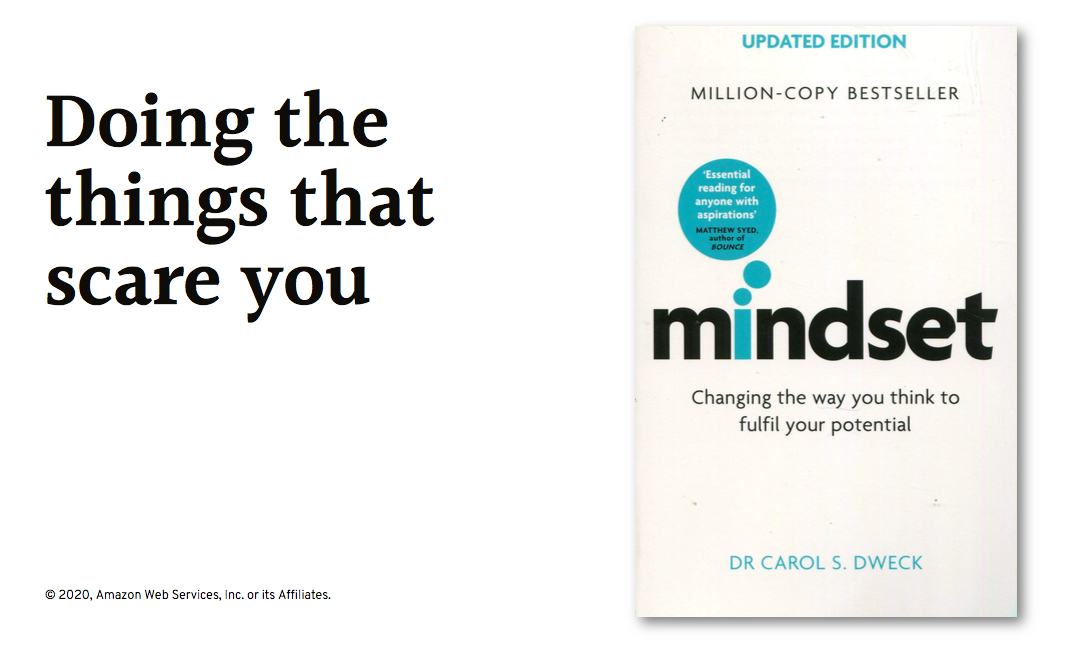
I saw a talk at a meetup about this book, Mindset by Carol Dweck, and it immediately resonated with me. Dweck is a psychologist with a focus on motivation, personality, and development. According to her, some people believe their success is based on innate ability; these folks are said to have a “fixed” mindset. They believe their basic abilities, their intelligence, their talents, are just fixed traits. They have a certain amount and that’s that, and then their goal becomes to look smart all the time and never look dumb. Others, who believe their success is based on hard work, learning, training and doggedness are said to have a “growth” mindset. They don’t necessarily think everyone’s the same or anyone can be Einstein, but they believe everyone can get smarter if they work at it. And one of the biggest differences in these groups is how they handle failure. Fixed mindset people fear failure because to them, it’s saying that they failed as a person. A growth mindset person doesn’t mind failure, because they know they’re learning and believe they’ll get better.
How many of us in this industry, as kids, were praised for being smart rather than for working hard? I know I was. I was in the “gifted” class – I mean right there, it’s a gift, right? I didn’t work for it. And when I read this book, I suddenly realised how many opportunities I’d missed due to fear of failure, for being seen as not good enough. Since I read it, I’ve made a point of doing things that in the past I would’ve avoided, due to a fear of being bad at it. I attended a three day functional programming course on Haskell. I learned to solder and weld. And I’ve said yes to job opportunities that might not have otherwise… like taking the leap into people management.
When I got offered a promotion to lead a team, I knew nothing about performance management, or how budgets worked, or what CapEx or OpEx were, or how to approve an expense, or even what managers actually did all day long. But I had had bad bosses in the past, and if nothing else, I figured I could add value to my team by protecting them from that. And hey, GROWTH MINDSET, right? So I made my second big career switch. And I made one really smart move that helped immensely – I got a mentor.
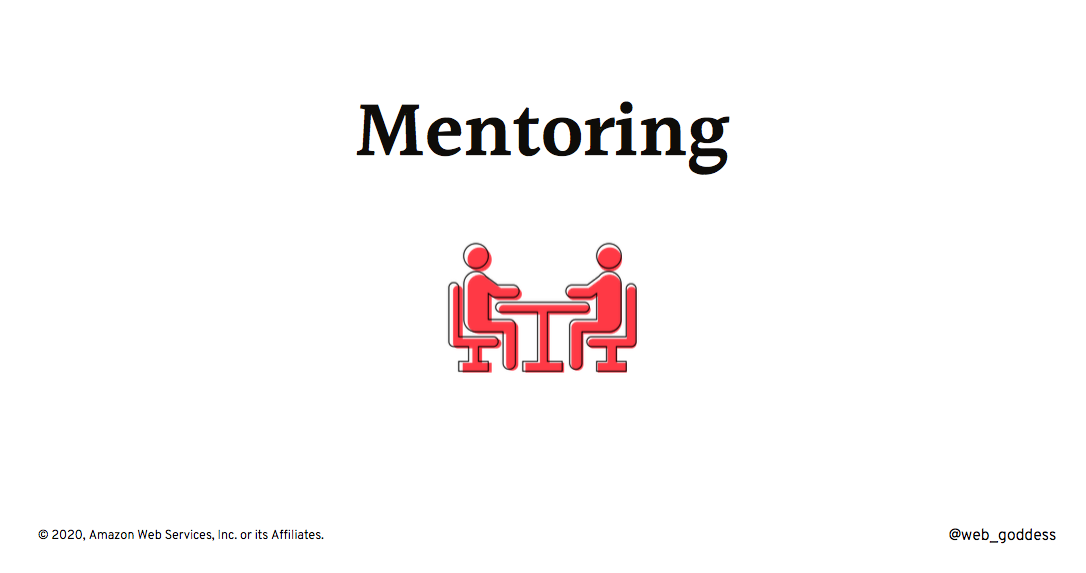
Whenever I talk about mentoring, the overwhelming response I get is that a lot of people don’t think they’re qualified to be mentors, but they’d really like one themselves, but have no idea how to make that happen. And that’s pretty much how I started out too. I thought of mentors as some wise older sage on the mountaintop that would dispense wisdom and tell me exactly what to do. But this is a myth, and it turns out mentors come in lots of different shapes and sizes.
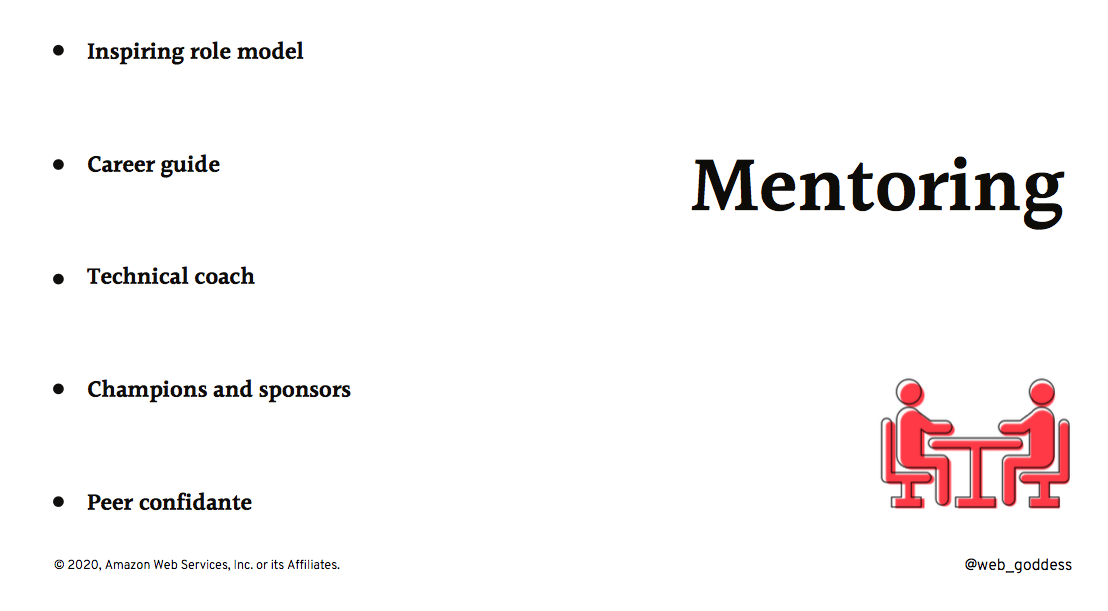
- Some mentors INSPIRE you – You can think of these as role models. It could be someone you’ve seen present at a conference, or who’s written a book you admire. You might not even know them personally, but they provide a vision that you’d like to emulate.
- Other mentors provide CAREER GUIDANCE – this is probably closest to the sage on the mountain. They’ve been there. They can help you see the big picture; plan for your future; and provide accountability.
- Some folks can help you with the day-to-day aspects of your job and how to get better at it. TECH MENTOR; better name might be COACHES. Maybe someone you pair program with. Maybe old colleague in the industry that you occasionally ask questions to. Could be a Slack community.
- Some mentors go beyond just giving you advice to become CHAMPIONS or SPONSORS. These are the folks who make you feel confident, and who actively advocate and campaign on your behalf.
- And then there are your PEERS, your friends, your colleagues – who you can share your frustrations with and get advice and ideas.
To get a formal mentor: if you’re lucky enough to have a mentoring program available through your work, take advantage of it. Ideally you’ll be paired up with someone outside of your reporting lines. I was able to get into a manager training program with external coaches who were really helpful at identifying some blindspots. There are also external mentoring programs out there. Maybe your university offers one, or a local professional body, or even your local tech meetup.
Or you can just ask somebody. This is the hardest one, and it feels so awkward, almost like asking someone out on a date! Several years ago I was at a meetup and saw a talk from a Sydney CTO that just immediately resonated me. I thought, “Wow, she seems like she has it all together. I wish she could tell me how to become like her!” But I couldn’t work up the courage to actually contact her. I assumed that someone in a C-level role would be far too busy and important to have time or even to bother meeting with someone like me. So instead what I did was basically… stalk her. Over the next few years I followed her career, I saw her speak at the occasional meetup, and I even introduced myself once or twice. One day I even got the courage to send her a LinkedIn request, and that was quite a highlight when she accepted it!
Fast forward a couple years, and I was at a real crossroads in my career. I was venting to my friend Cath and said I really wished I had a mentor to guide me. And she said, “You know who you should have as a mentor?” And she said this person, the one I’d been following for years! And I said, “Of course, right? But she’s far too busy and important to have any time for me.” And Cath looked at me and said, with all love, “Kris, you’re an idiot. Here’s what you do…” And she gave me a tip. An amazing tip. Call it my ONE WEIRD TIP TO GET YOUR DREAM MENTOR. She said, “You email the person and introduce yourself, and say that you’re looking after a mentor who has X, Y, Z qualities. And obviously, you’d be amazing, but I know how busy you must be. So do you have any time where we could grab a coffee so you could suggest some potential mentors from your network?”
And this, my friends, is the genius. It gives the person an out. If they really are too busy, you will still probably get a list of names that they recommend for you! But what is more likely – and what happened with me – was that we met up for a coffee, and by the end of that conversation we’d set up monthly mentoring sessions going forward. My only regret is that I didn’t reach out to her a lot sooner. Eventually I told her the whole story, and she laughed at me and confirmed that I should’ve asked her years earlier. Learn from my experience!
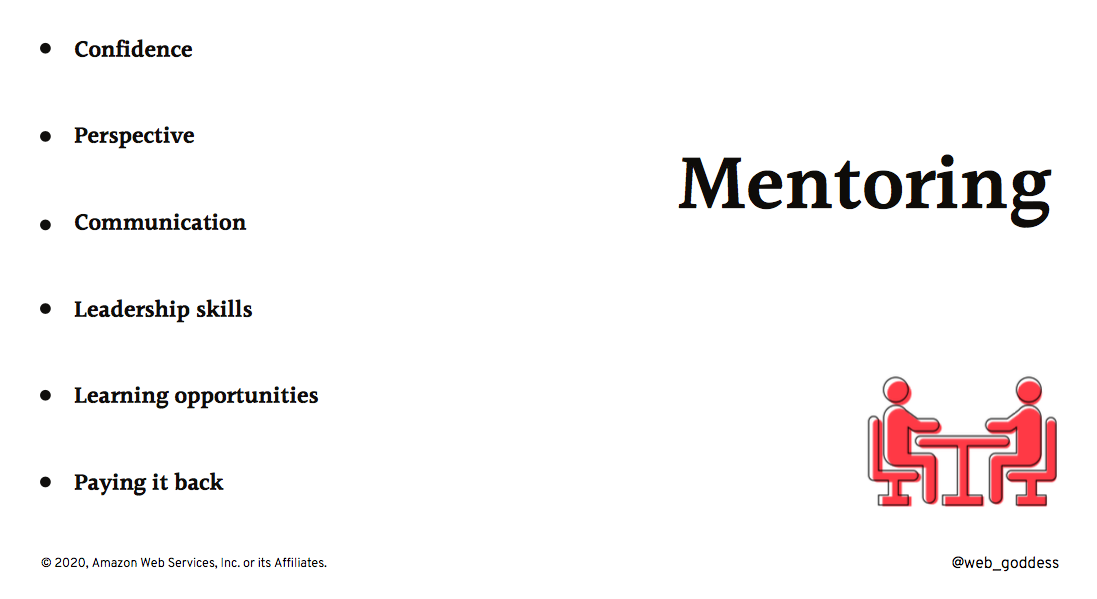
And I don’t want you to think that mentoring is a one-way street, where it’s all about somebody else helping you out. I also want to encourage you to think about stepping up as a mentor yourself. There are so many benefits, even if you don’t think you’re quite ready for it. It’ll give you confidence – Imposter Syndrome affects like 70% of us. When someone else gets value from your experience, it validates your skills and all the hard work you’ve put in. It also gives you perspective on your own problems, which are probably not as unique as you think. It’ll help improve your communication skills because you’ll get practice explaining your ideas in different ways and seeing how your ideas are received. It’s also a great way to learn leadership skills, where it’s often not about what you do, it’s about influencing other people to get things done. So mentoring can be a really good stepping stone and give you an idea of what people leadership could be like. And even if you’re the most senior, grizzled developer in the world, mentoring someone outside your team will give you exposure to new trends and techniques you aren’t aware of. For me personally, mentoring is also about making the tech industry better, and paying it back for all the folks that helped me along the way. It helps keep the spiritual burnout away. If you value connecting with people, as I do, seeing them accomplish something they didn’t think they could is just the greatest feeling in the world.
So at this point I was more than ten years into my career, and finally starting to figure out the things that were important to me, that made me feel happy and satisfied. And what’s more, I could tell that the company I was in – a traditional free-to-air media company – was not lining up with those. I felt bored and constricted. I felt the need for adventure and excitement. I felt the siren call… of the startup.
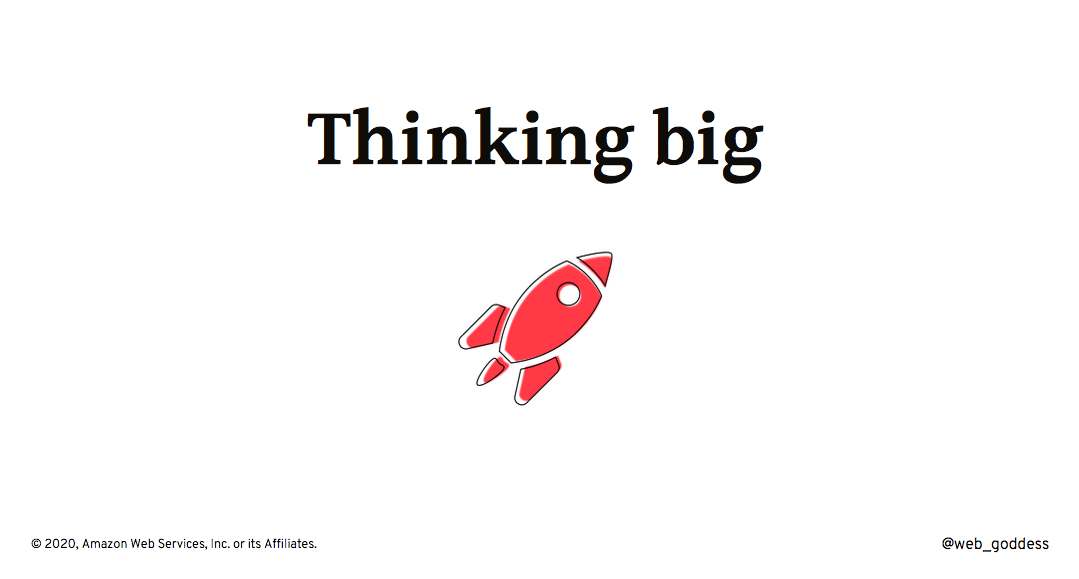
It all started when I went to an event in Sydney where I heard one of the founders of Canva speak about his company. This was years ago, and they were still small, but I started researching them and I really liked everything I read. People seemed to really love what they were doing, and they were willing to pay for it. Think about how rare that is in this industry! You build something and don’t have to, like, trick people into using it, or slap ads all over it. I commented about it to my husband who replied, “Oh right! I’ve heard of them. They keep trying to hire me.” He explained that one of the founders kept messaging him on LinkedIn with links to their open developer roles. I had a look on the Canva jobs site but there weren’t any non-coder jobs listed, and my coding days were behind me. But I took a deep breath and figured “What the hell.” I sent one of the founders an email and basically told him he was chasing the wrong person in the family. To my surprise he suggested I come in to have a chat, and less than two months later I was working there. They created the role of an all rounder for me.
You miss 100% of the shots you don’t take. I think for a lot of us, we opt out of potential opportunities because we assume they won’t pay off. This was the example that really showed me that I needed to trust my gut and swing for the fences more often. I joined Canva when they were undergoing massive growth, and in many ways, it reminded me of the start of my career in the dotcom boom. The entire company was changing every other month. I loved my time there, and I’m so proud of the massive things we were able to accomplish. Nothing was too hard or out of scope. But also, we were scrappy and always working within tight constraints, and I found that some of the ideas I had for things we could do, it was just too early for them. I recognised that while I love the energy and innovation of a startup, I also thrive better in an environment that’s a little more established, with a bit more structure, where I could execute on my ideas rather than helping fulfill somebody else’s. I also wanted to share with the wider tech community some of the stuff we were doing, but oftentimes in a startup that just isn’t possible, because of competitor pressure or even just time constraints. So it was time for my third major career shift – into developer relations.
I got the opportunity to join YOW Conferences in Australia, where my job was to help put on tech events and to help represent the voice of the community in the topics we covered and the speakers we featured. I went to hundreds of meetups – both as a speaker but way more as an attendee – and I got really serious about building out my network. And again, I think this is a massively underrated tool you can use in your career journey.
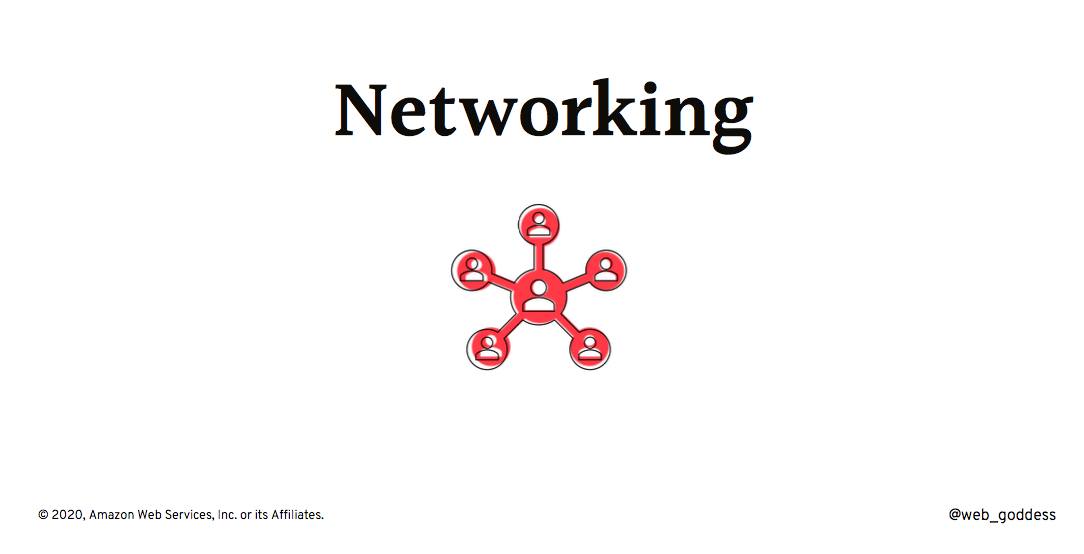
Someone once complimented me early on in my career as being one of the best networkers in the industry, and I actually took that as a bit of an insult. I think sometimes technical people can get the idea that “networking” is something that just salespeople do, that it somehow means being fake or accumulating LinkedIn followers just for the sake of it. For me, it’s actually about being authentic, and legitimately wanting to talk to other people and learn from them. I’ve benefited massively from people in this industry – job and speaking opportunities, mentoring, exposure to new ideas, and making lifelong friends. So it’s not about being transactional or becoming an influencer, but rather how we can all support each other.
That said – I SUCK at remembering names. I’m sure that goes for many of you. So I’ve had to build out some actual infrastructure to help me. You used to be able to record a note for each of your LinkedIn connections, which was super helpful for remembering how and where you met people, but when Microsoft bought them they removed that feature. I’ve since tried a few different “personal CRMs” over the years – and yes, that’s actually a thing – and eventually settled on one called Contacts+. (Unsolicited endorsement; I just like them a lot.) It’s basically an address book on steroids, and you can tag contacts and add notes that you can later search on. And then to populate it, well, if one was so inclined, one could search Github for “LinkedIn Scraper.” And then one could hook that up to a shortcut on their laptop, so one could simply hit a few keys and have the current LinkedIn profile scraped and uploaded to Contacts+ via their API. I couldn’t possibly comment. But you know, hit me up if you want more details about how one might hypothetically do that.
And just to give you a concrete example of the benefits of my network, it was through a conference speaker I met, Lynn Langit – who’s since become a good friend and champion – that I got recommended as a speaker for Build Stuff, which is why I was able to travel to Vilnius last year, and which helped inspire the decision to move to Europe.
Okay, so we’re nearly at the end. While YOW offered me lots of opportunities to talk to people, to have autonomy and to grow my network, I started to get envious of people who were out there building things instead of just talking about it. And that’s when AWS happened to reach out. And while I was scared – this felt like the big leagues – I repeated my mantra (“Growth mindset! Growth mindset!”) and decided to go for it.
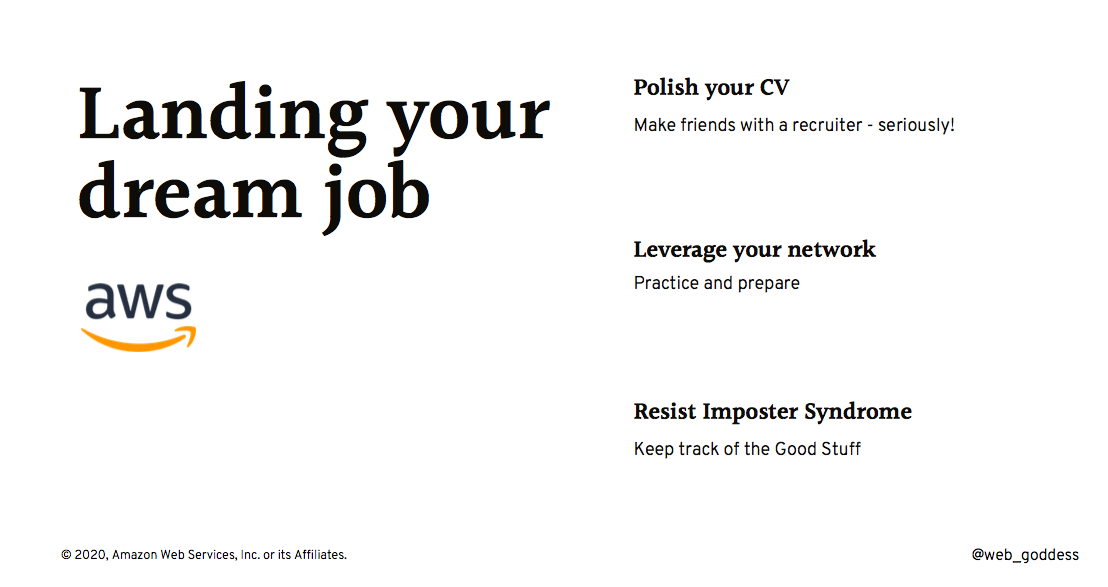
If you ever find yourself in a similar boat – and I know right now there are lots of people looking for new roles; I did a mentoring panel at a meetup about it just last week – there are some practical things I think you can do to increase your chances of getting hired. First and foremost is to polish your CV. Ideally this shouldn’t be something you do only when you’ve decided to go for a new job. And if you really want to shine, you should get someone else to review it and give you feedback. Maybe this is a mentor, or someone from the community – I’ve participated in CV review sessions at meetups – or best of all, a recruiter! Believe it or not, there are actually really good recruiters in the tech industry who will help you make sure your CV represents you at your best and is tailored to the type of role you want. Next, leverage your network. It turns out I knew lots of folks who worked at AWS – one of them had even referred me – and I had coffee with a few of them to learn more about the company, its Leadership Principles, and what makes a good Amazonian. This really helped with my preparation for the interview.
And lastly, when you get the job, you need to resist Imposter Syndrome as much as possible. I have a couple mechanisms that help me with this. I keep a text file open on my computer where I jot down my accomplishments, just a couple bullet points, every single day. I means you never get to the end of the week, the month, or the performance review cycle, and think, “What did I actually accomplish?” I also have a doc that I refer to, embarrassingly, as the Good Stuff File. This is where I make a note whenever I get a thank you, or some good feedback, or an award or something like that. Whenever I’m having a bad day and the Imposter Syndrome hits, I can look back over this file and remember that I do know what I’m doing, and it really really helps. A Daily Log and a Good Stuff File will also help you in the future, if you decide your current role is no longer right for you and you need to course correct your career path again.
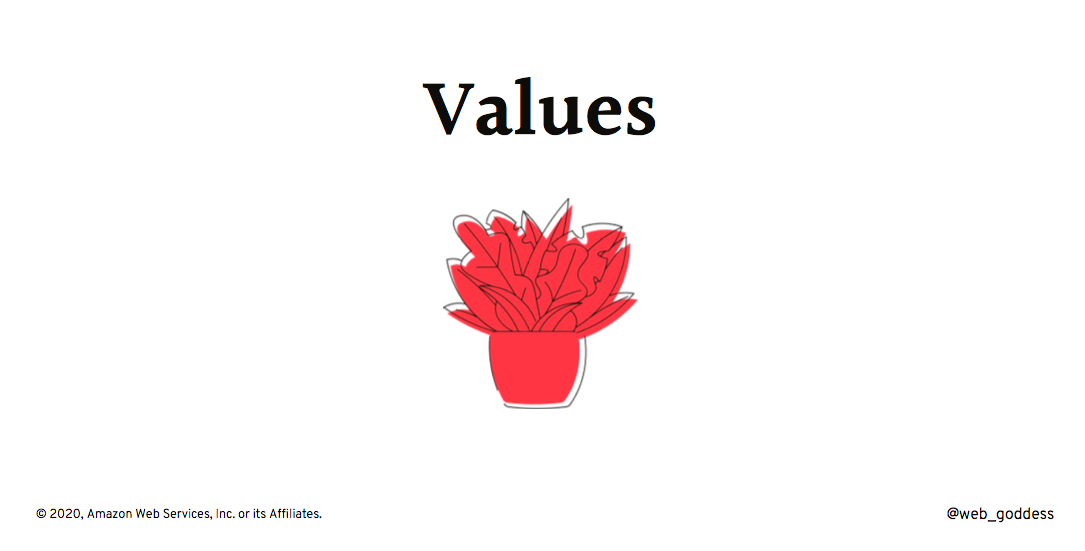
I’d like to wrap things up by bringing it back to values again. Remember – your values exist whether you recognize them or not. Life can be much easier when you acknowledge your values – and when you make plans and decisions that honor them. If you value family but you’re working 60 hour weeks, is that really going to make you happy? If you crave adventurousness and creativity, are you going to be happy in a conservative megacorporation? It’s also important to note that your values can change throughout your life, and what you think is important for success when you’re 20 might be very different to when you’re staring down the barrel of 40.
It’s taken me a long time to figure out what makes me happy in my working life, but thankfully, there are ways you can shortcut that process. If you are feeling unbalanced, or on the verge of burnout, or even just unsure if which direction you should take, this exercise can help. I learned about it through my friend Jody Podbury, and I’ve gone through it with my own teams as well as people I mentor.
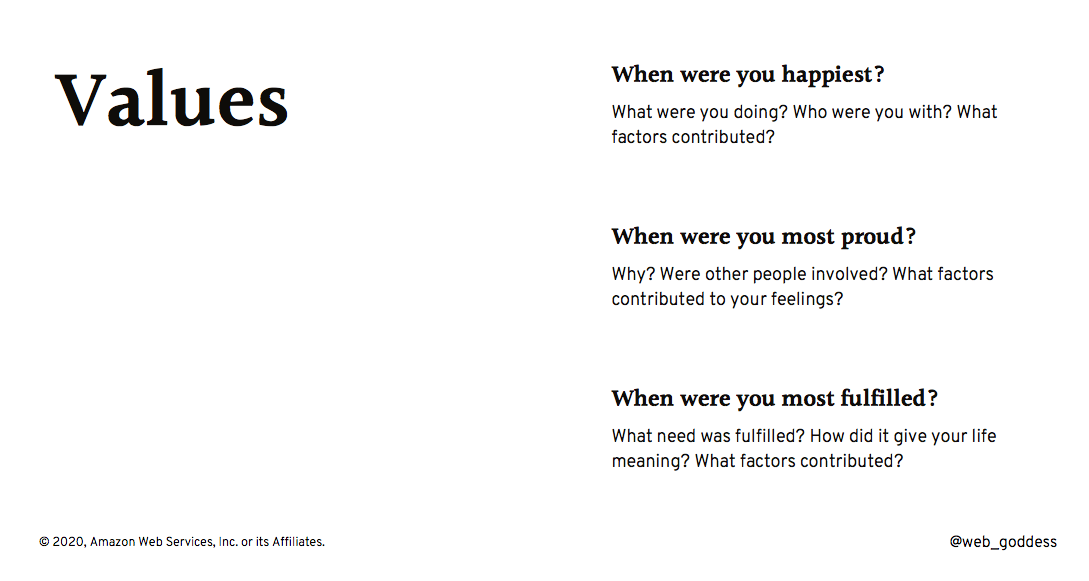
Start by taking a few minutes to think back on your life to identify when you felt happiest, at your best, and really confident that you were making the right choices. We’re not just talking career here; I want you to think about your personal life too. If you can, grab some paper or open up a text editor and jot down the experiences you’re thinking of.
For me, I think about finishing my first (and so far only) marathon, which involved months of planning and hard work and meeting a really tough goal. I also think about the AWS Sydney Summit last year, when my team helped put on a conference for 25,000 attendees, and everyone worked so hard, whether giving talks at sessions, or helping customers at the Ask an Architect Booth, or hosting 20+ streaming sessions on Twitch like I did. I was so, so proud, and even though I was tired, I loved every second of it. I think about the travel adventures my husband and I have been fortunate enough to go on, like coming to Europe last year for Build Stuff, and getting such great feedback for my talk from all of you, and getting inspired in 2020 to relocate.
Whatever experiences you’ve got, keep them in mind for this next bit. I’m going to show you a slide with a LOT of common personal values on it.
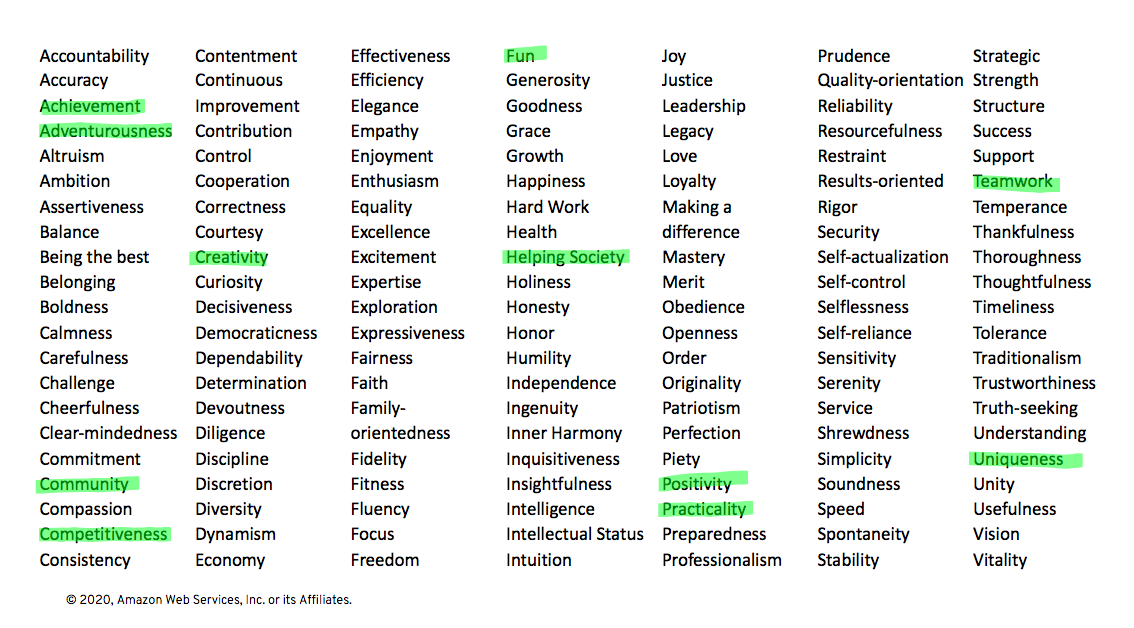
I want you all to take a few minutes and read through this list, and just start noting down the ones that resonate with you in light of those experiences from your life. The ones I have chosen for myself are highlighted in green.
Now the next step is actually the hardest – we need to whittle this down to just your top values. You can do that by prioritising them, or by cutting them in half and continuing until you get down to your top 3 or 4 values. So if you had to choose the top priorities, the ones that make you feel good about yourself and that you’d be proud to share with others, what would they be?
For me, right now, those are Adventurousness, Community, Positivity, and Teamwork. And now, I think, you can see why I chose to move halfway around the world to join the AWS Developer Relations team less than three months ago. Sure, there have been challenges and bad days and hard work, but because the decision was rooted in my deeply held values, I feel happy and fulfilled.
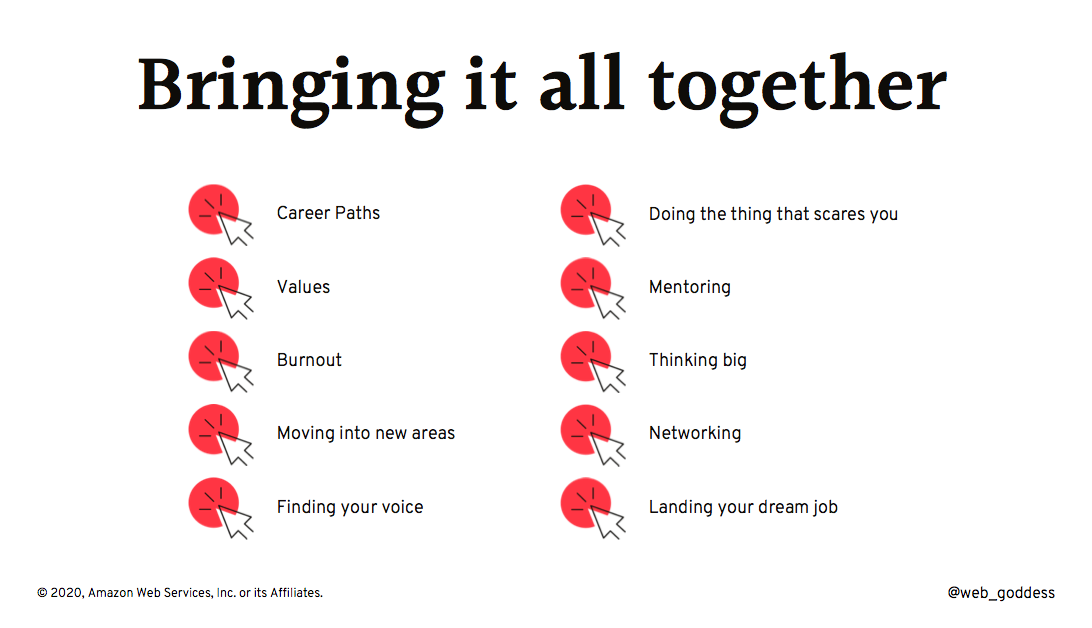
So just to bring it all together: I took you on a little journey throughout my own career history. We started off by talking about career paths, and they are very rarely a straight line from A to B, and that’s okay! Your career goals will change throughout your life along with your values, the things you believe are most important in the way you live and work. As long as you’re behaving and making decisions in alignment with your values, life is generally pretty good. When things are out of alignment, you risk burnout – whether from overwork, stress, or unhappiness. It’s never too late to make a career change though, and by hustling to expand your responsibilities and your network in your day job, you’ll open up the door for new opportunities. I also think that working on improving your speaking and communication skills is vital for anyone in the tech industry, regardless of whether you ever step onto a stage. (And do remember to check out that Damian Conway video.) Many of us fall into the trap of avoiding activities that we think we won’t be good at, and then we miss out on the chance to learn. If you make the effort to cultivate a growth mindset – like in Carol Dweck’s book – you’ll stop fearing failure and starting seeing it as a chance to grow. I also shared with you some of the different types of mentors I’ve had in my life, as well as my secret tip for getting your dream mentor. I also told you how I talked my way into one of the hottest startups, and why it’s you should always swing big. We also spoke about networking, and how it’s less about gamifying your influence, and more about being an active, supportive part of the community. And lastly, once you identify the role that lines up with your top priorities, some steps you can take to land the offer and set yourself up for success.
I hope you’ve enjoyed hearing about my career path, and I wish you all the best for 2021!

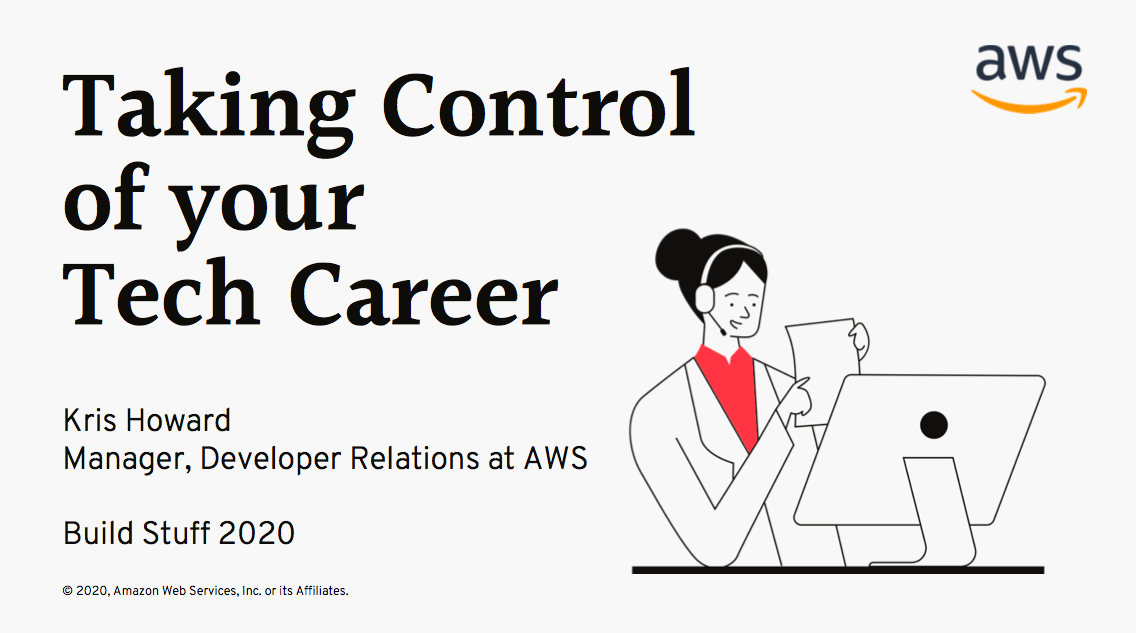
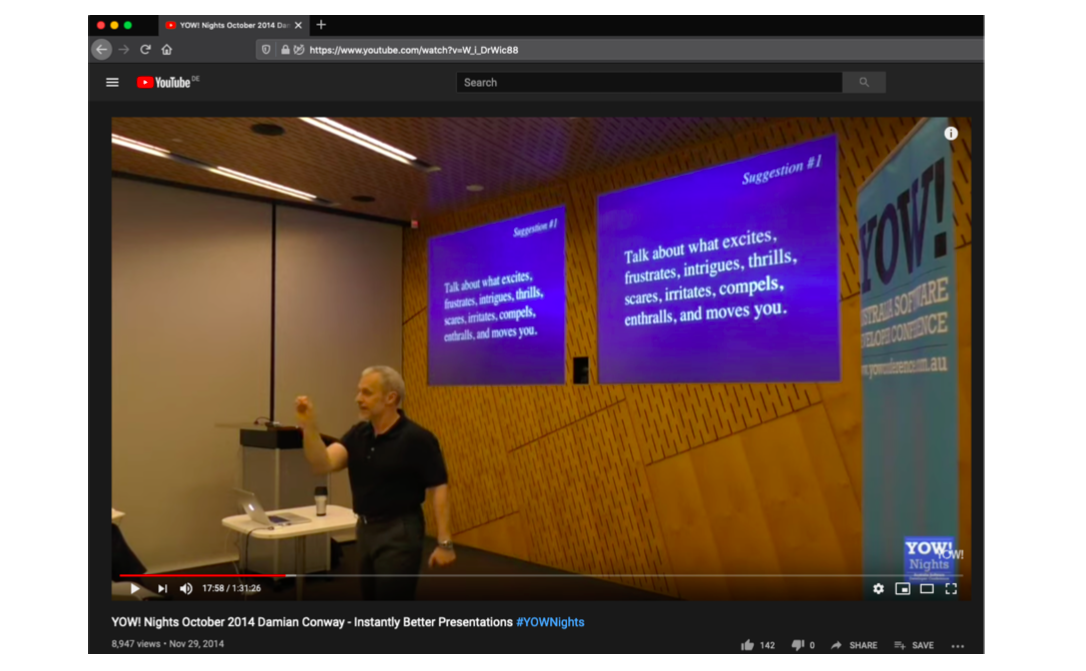
Comments
One response to “Taking Control of your Tech Career”
Hi Kris, Thanks so much for your candor. Starting a Good Stuff file now. Love the tangible and philosophical takeaways. I’m currently pivoting (again) and really appreciate the parallels. They give me much hope and affirmation.